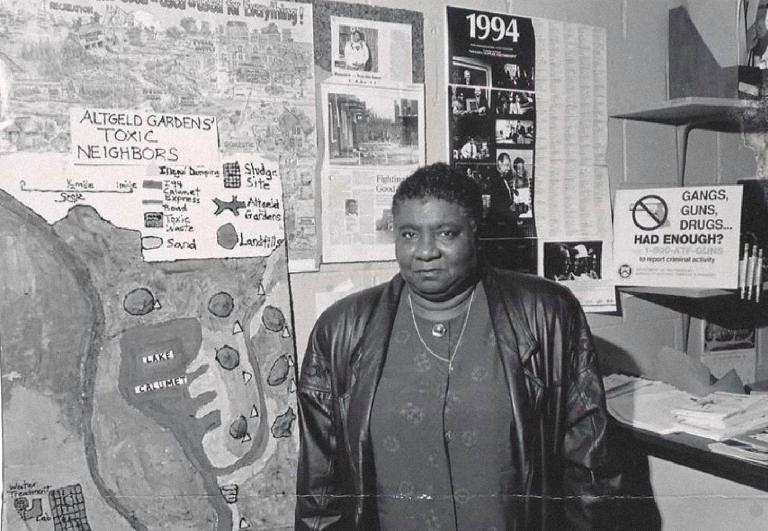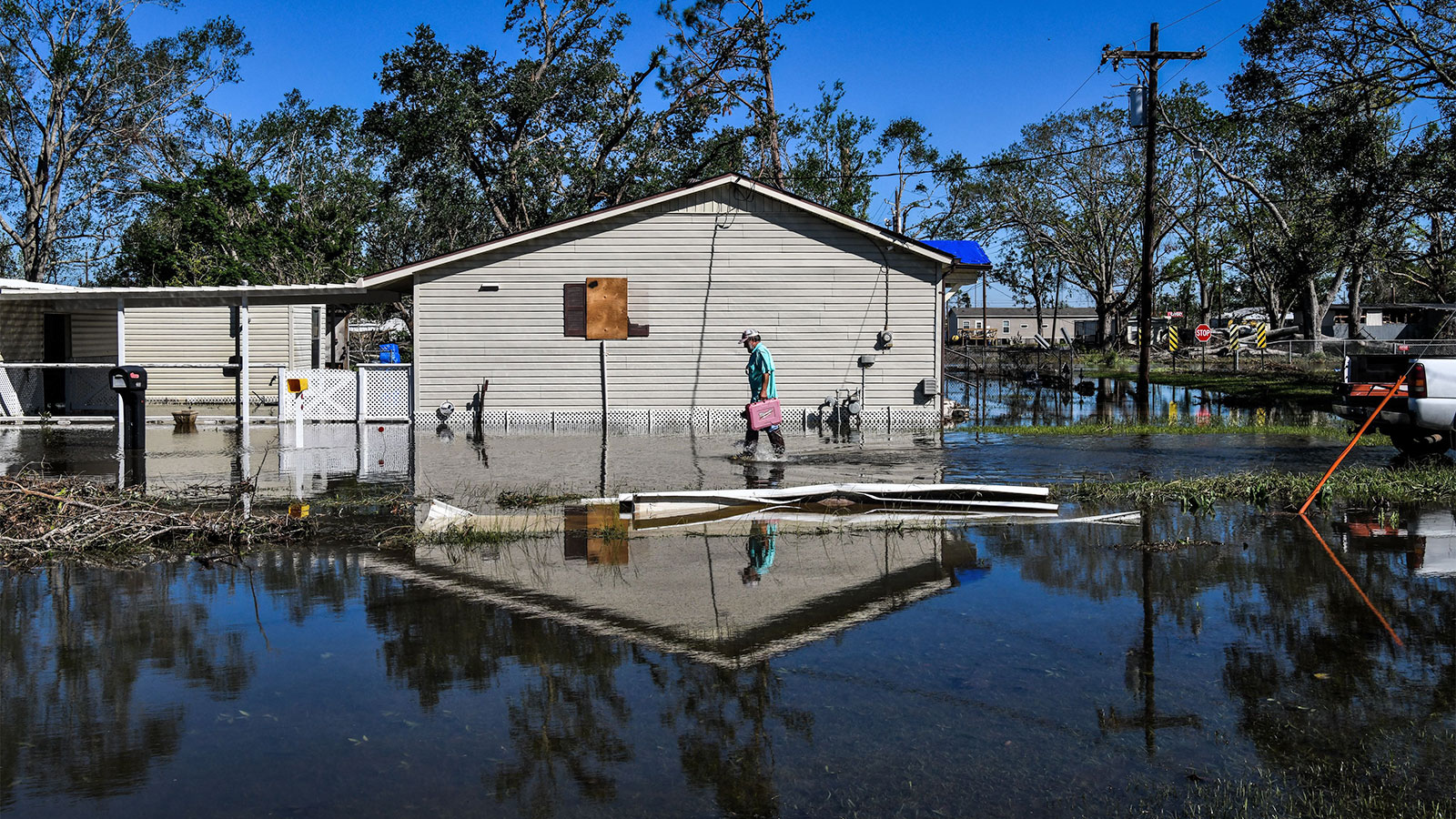Lake Charles can’t seem to catch a break.
Amid the backdrop of the COVID-19 pandemic, the Southwest Louisiana city faced three hurricanes in 2020, leaving thousands without homes and jobs. And this week it was pelted by a once-in-a-century rain event, which brought an estimated 15 inches of rain in just 12 hours. Lake Charles’ roughly 75,000 residents joined about 30 million people across the South threatened by flooding this week — and at least four people have already died statewide due to the storms.
Two weeks ago, President Joe Biden visited the city, using its destroyed homes, dilapidated roads, and the 70-year-old Calcasieu River Bridge as a backdrop to highlight the need for his new infrastructure package. While he was there, Biden pledged help with hurricane recovery: “I believe you need the help,” he said. “We’re going to try to make sure you get it. But the people of Louisiana always have picked themselves up, just like America always picks itself up.”
Darryl Malek-Wiley, a senior environmental justice organizer with the Sierra Club based in New Orleans, agrees that the country must update its crumbling infrastructure, including in places like Lake Charles. But when it comes to recovering from the extreme weather events that climate change is intensifying, leaders should focus less on citizens picking themselves up and more on the government addressing the needs of those bearing the brunt of disasters. “If you’re not making enough money to put food on the table,” Malek-Wiley said, “you’re just trying to survive.”
Nearly half of all residents in Lake Charles are Black and one-fourth live in poverty. However, poverty estimates are likely undercounts because of what the city has endured just in this last year: a deadly COVID-19 outbreak and four federally declared disasters (the COVID-19 pandemic, Hurricanes Laura and Delta, and the winter storm that crippled much of the U.S. Gulf coast in mid-February).*
“We are a very resilient people. We are a very strong population,” Lake Charles Mayor Nic Hunter told USA Today after Monday’s downpour. “But, you know, eventually you do kind of get to a point where you ask Mother Nature: What more can you do to us?”
According to U.S. Postal Service data, the city suffered the most population loss in the country last year, with 6.7 percent of its residents leaving. Mass evictions and a slow federal aid process have left tens of thousands of people without shelter and their homes in disrepair, forcing many to take refuge in tents.
“The federal government and state governments are not designed to handle disaster, and FEMA is outdated in the way it handles this type of climate-related disasters — taking a slow, fragmented approach,” Malek-Wiley said. “What we need is proactive budgeting towards infrastructure, changing building codes, and making sure houses are livable, not just for wealthier communities.”
This holistic approach to combating climate change is required, Malek-Wiley says, because a place like Lake Charles, which faces regular natural disasters, is also situated heavily industrial area. In the last year, the U.S. Environmental Protection Agency has taken action against more than a dozen petrochemical plants in Lake Charles and surrounding communities for emitting more pollution than they’re allowed by law. “Not only is flooding a problem but then plants get flooded and shut down, which adds unchecked air and water emissions, adding insult to injury,” Malek-Wiley explained.
He says Hurricane Katrina showed the country the need for a way forward — that communities in low-lying areas like those in Southern Louisiana need to learn to live with water. In New Orleans, that’s meant thinking about more than just pumping water out of the city, but also finding ways to slow floodwaters by building green infrastructure.
“That needs to happen everywhere in this country,” Malek-Wiley said, “especially in Lake Charles.”
*Correction: This story originally misstated one of the four federally declared disasters to hit Lake Charles.



